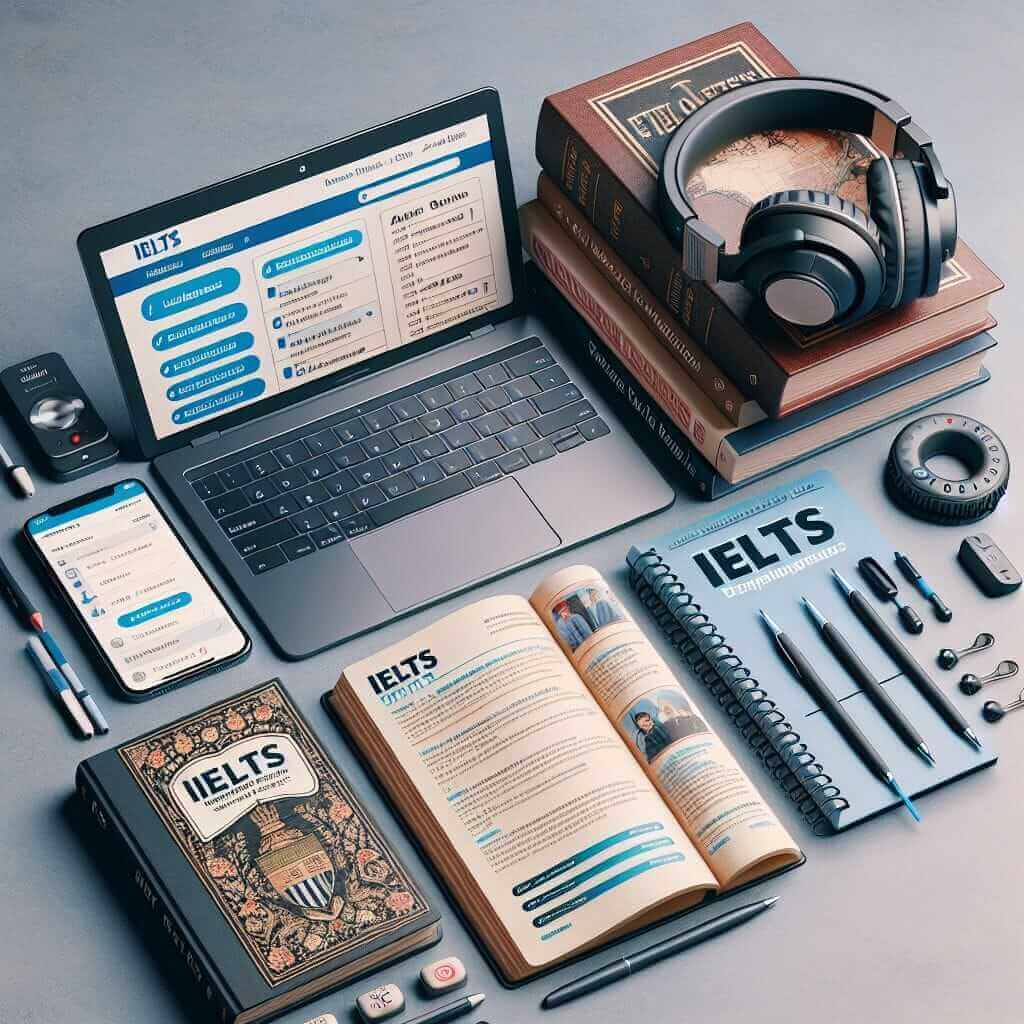The International English Language Testing System (IELTS) is a globally recognized English proficiency test that assesses your ability to listen, read, write, and speak in English. Whether you’re aiming to study abroad, immigrate to an English-speaking country, or advance your career, achieving your target IELTS band score is crucial. As an IELTS instructor with over 20 years of experience, I’ve witnessed countless students achieve their desired scores by following a structured study plan and employing effective strategies. This comprehensive guide will provide you with invaluable insights and practical tips on how to study for IELTS effectively and maximize your chances of success.
Understanding the IELTS Exam
Before embarking on your IELTS preparation journey, it’s crucial to understand the structure and content of the exam. The IELTS exam is divided into four sections:
- Listening: This section assesses your ability to understand spoken English in various contexts, including conversations, lectures, and announcements.
- Reading: This section evaluates your comprehension skills by presenting you with a variety of texts, such as articles, reports, and academic papers.
- Writing: In this section, you will be required to demonstrate your writing skills by composing two tasks, typically an essay and a report or letter.
- Speaking: This section assesses your spoken English fluency, vocabulary, grammar, and pronunciation through a face-to-face interview with a certified examiner.
Effective IELTS Study Strategies
1. Define Your Target Band Score and Create a Study Plan
Start by identifying your desired IELTS band score, as this will determine the intensity and focus of your preparation. Once you have a clear goal in mind, create a realistic study schedule that allocates sufficient time to each section of the exam. Consistency is key, so aim to study regularly, even if it’s just for a short period each day.
2. Familiarize Yourself with the IELTS Exam Format
A crucial aspect of IELTS preparation is familiarization with the exam format. This includes understanding the types of questions asked, the time limits for each section, and the marking criteria. Practice tests are invaluable resources for this purpose.
3. Enhance Your English Language Skills
Improving your overall English proficiency is fundamental to achieving a high IELTS score. Focus on the four key skills assessed in the exam:
- Listening: Engage in activities that expose you to diverse English accents and speaking styles. Listen to podcasts, watch English-language movies and TV shows, and practice listening to English news channels.
- Reading: Cultivate a habit of reading English texts regularly. Choose materials that align with your interests and gradually increase the difficulty level. Pay attention to vocabulary, grammar, and text structure.
- Writing: Practice writing different types of essays, reports, and letters, adhering to the IELTS writing task requirements. Seek feedback from experienced teachers or tutors to identify areas for improvement.
- Speaking: Engage in regular English conversations with native speakers or proficient English speakers. Record yourself speaking and analyze your fluency, pronunciation, and grammatical accuracy.
4. Master IELTS-Specific Strategies and Techniques
While a strong foundation in English is essential, it’s equally important to learn IELTS-specific strategies and techniques. These techniques can help you approach questions more effectively, manage time efficiently, and maximize your score.
Examples of IELTS-specific strategies:
- Skimming and Scanning: In the reading section, practice skimming and scanning techniques to quickly locate relevant information within the text.
- Paraphrasing: Develop your paraphrasing skills to express ideas from the reading and listening sections in your own words in the writing and speaking sections.
- Time Management: Practice answering questions under timed conditions to improve your time management skills during the actual exam.

5. Utilize High-Quality IELTS Preparation Resources
Invest in reputable IELTS preparation materials, such as textbooks, online courses, and practice tests. These resources provide comprehensive guidance, strategies, and practice opportunities tailored specifically for the IELTS exam.
Recommended IELTS Preparation Resources:
- Official IELTS website
- Cambridge IELTS practice test books
- Online IELTS preparation platforms (e.g., Magoosh, Kaplan)
6. Seek Feedback and Track Your Progress
Regularly review your practice tests and writing tasks to identify areas where you excel and areas that require further improvement. Seek feedback from experienced IELTS instructors or tutors to gain valuable insights and guidance.
IELTS Speaking Test Tips
The IELTS Speaking test can be particularly daunting for some test takers. Here are some specific tips to help you excel in this section:
1. Speak Fluently and Naturally
Focus on speaking at a steady pace, avoiding long pauses or hesitations. Use a variety of grammatical structures and vocabulary to demonstrate your language proficiency.
2. Express Ideas Clearly and Coherently
Organize your thoughts before speaking and use linking words and phrases to connect your ideas logically. Ensure that your responses are relevant to the questions asked.
3. Use a Range of Vocabulary
Showcase your vocabulary by using a variety of words and phrases. However, avoid using overly complex language if you’re unsure of its meaning or usage.
4. Pay Attention to Pronunciation
While perfect pronunciation is not expected, it’s important to pronounce words clearly and intelligibly. Pay attention to word stress and intonation.
5. Practice Regularly with a Partner
Engage in mock speaking tests with a study partner or an experienced IELTS tutor to simulate exam conditions and receive feedback.
Conclusion
Achieving your desired IELTS band score requires a combination of effective study strategies, consistent effort, and a deep understanding of the exam format. By following the tips and insights outlined in this comprehensive guide, you can approach your IELTS preparation with confidence and maximize your chances of success. Remember to stay focused, persevere through challenges, and believe in your ability to achieve your language goals.